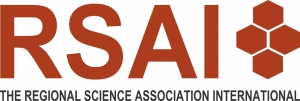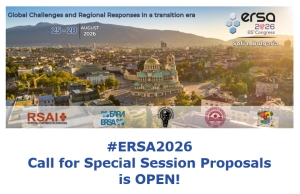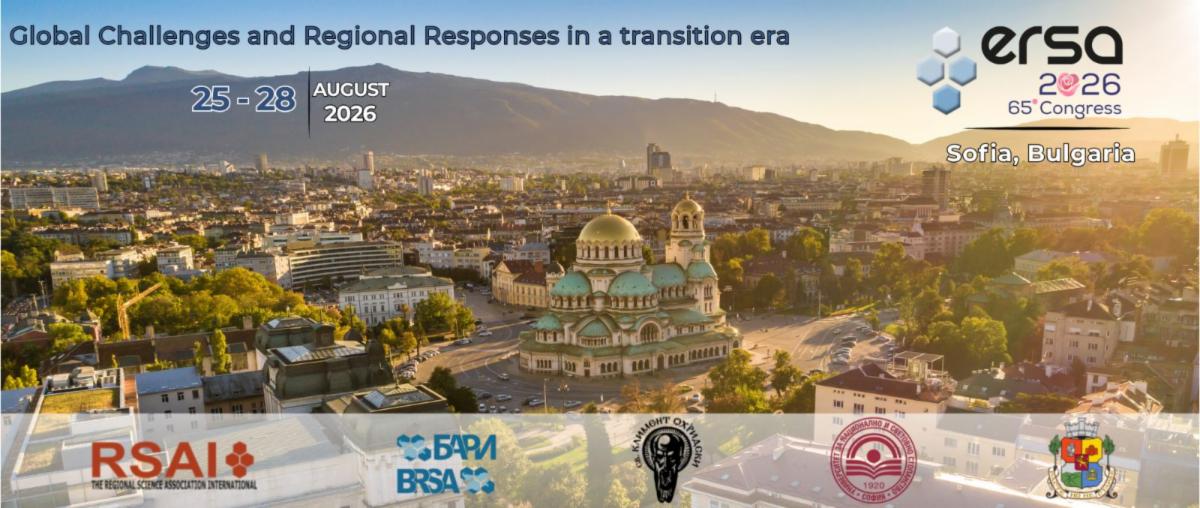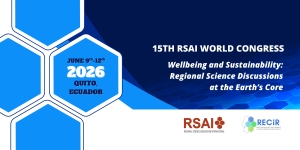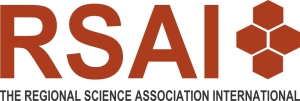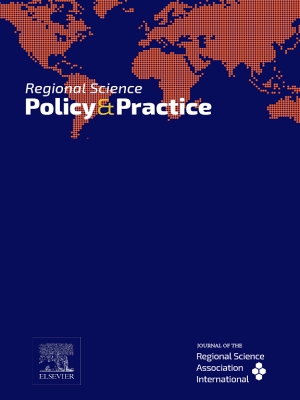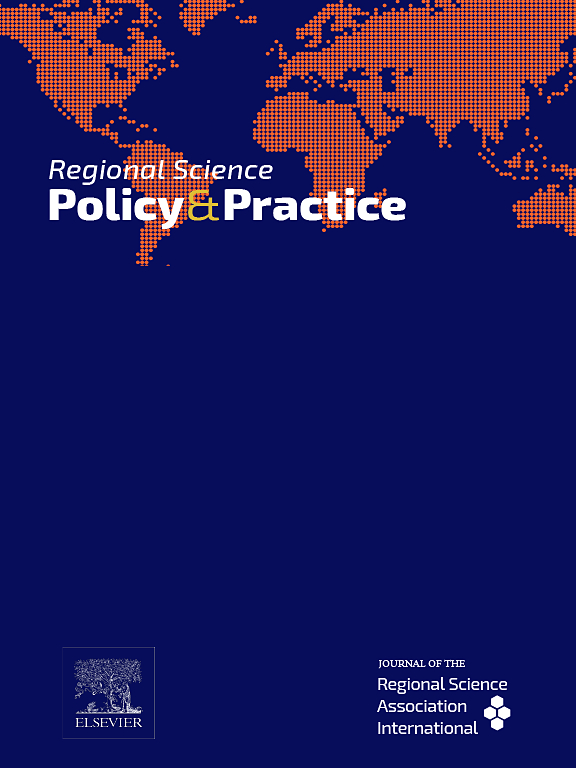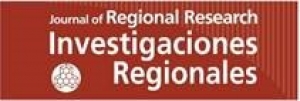How to Join
Elisabete Martins
The Department of Economics at the University of Toledo invites applications for a full-time, tenure-track position at the rank of Assistant Professor of Economics
Assistant Professor, Economics
- Job Description:
The Department of Economics at the University of Toledo invites applications for a full-time, tenure-track position at the rank of Assistant Professor of Economics, beginning August 24, 2026. We seek candidates specializing in applied econometrics—with a focus on spatial econometrics and time-series/forecasting—and applied macroeconomics. Applicants should demonstrate strong quantitative skills, an active interest in applied research, and the ability to contribute to the Ph.D. program in Spatially Integrated Social Sciences by teaching courses in spatial econometrics and mentoring doctoral students.
Successful candidates must be able to teach effectively at both the undergraduate and graduate levels and provide evidence of strong teaching ability. Responsibilities include conducting and publishing research, teaching undergraduate and graduate courses, advising and mentoring students, and providing service to the department, college, and university. The ideal candidate will have prior faculty experience either in a temporary or permanent position, although all applicants will receive full consideration.
For questions, please contact Dr. James Bland, This email address is being protected from spambots. You need JavaScript enabled to view it.
Please include a current C.V., recent research paper or publication and current teaching evaluations.
Minimum Qualifications:
Qualified candidates should have a PhD in Economics or a related discipline. Evidence of a strong applied research agenda is required. Applicants must demonstrate a commitment to excellence in teaching and mentoring at both undergraduate and graduate levels, as well as a clear potential for securing external funding.
Preferred Qualifications:
Teaching experience beyond the Principles of Microeconomics or Principles of Macroeconomics.
Prior experience in a faculty position.
Conditions of Employment:
To promote the highest levels of health and well-being, the University of Toledo campuses are tobacco-free. Pre-employment health screening requirements for the University of Toledo Health Science Campus Medical Center will include drug and other required health screenings for the position.
Equal Employment Opportunity Statement:
The University of Toledo is an equal opportunity employer. The University of Toledo does not discriminate in employment, educational programs, or activities on the basis of race, color, religion, sex, age, ancestry, national origin, sexual orientation, gender identity and expression, military or veteran status, disability, familial status, or political affiliation.
The University is dedicated to attracting and retaining the best and brightest talent and fostering a culture of respect.
The University of Toledo provides reasonable accommodation to individuals with disabilities. If you require accommodation to complete this application, or for testing or interviewing, please contact HR Compliance at This email address is being protected from spambots. You need JavaScript enabled to view it. or 419-530-4747 between the hours of 8:30 a.m. and 5 p.m. or apply online for an accommodation request.
Computer access is available at most public libraries and at the Office of Human Resources located in the Center for Administrative Support on the UToledo Main Campus.- + info at: https://jobs.chronicle.com/job/37900887/assistant-professor-economics/
Call for candidatures for new RSAI president | Extended deadline: October 31st, 2025
Dear Members of the Regional Science Association International,
according to the RSAI Constitution, each first year of term of the RSAI President, the Association faces the pleasant task of electing the Incoming President, who will in 2026 take on the position of President Elect, and work along with Prof. Hiroyuki Shibusawsa, current RSAI President, to gradually move on to the position of President in 2027. Here is an excerpt of the rules of the Association for managing this important step:
Nomination committee. The RSAI Council has appointed a dedicated nomination committee, that following the rule of the RSAI Constitution is made up of the RSAI President (Hiroyuki Shibusawsa), the RSAI Immediate Past-President (Hans Westlund), four members of the RSAI Council (one each from among the council members who are appointees of the four superregional organizations: Roberta Capello for ERSA, In Kwon Park for PRSCO, Andre Chagas for LARSA; Sarah Low for NARSC), and two members of the Long Range Planning Committee (LRPC) recommended by the LRPC itself (Eduardo Haddad and Budy Resosurdamo).
Criteria of the nominees. The nominees should satisfy the following criteria: a) financial resources sufficient to cover travel costs to perform RSAI duties; b) support from candidate’s institution including relaxation of duties to enable President to travel as needed to execute RSAI business; c) RSAI Council experience (Council member experience) and/or other service to the regional science community (e.g., supra-regional and/or other sections, editor or one of the regional science journals, etc.).
Election procedure. The President Elect nomination committee shall [...] make a recommendation to Council at a Council meeting of this same year. Upon receiving this recommendation, the Council will select a nominee. The President‐Elect and Vice‐President shall start his/her appointment at the start of the next calendar year (i.e. the second year of the current President’s term).
RSAI members from the NARSC area who want to be nominated as candidate for the President of the Regional Science Association International should send to This email address is being protected from spambots. You need JavaScript enabled to view it. (cc-ing the RSAI ED at This email address is being protected from spambots. You need JavaScript enabled to view it.) within October 31st, 2025 the following material:
- A two-page CV and a Picture;
- A two-page statement on the motives in support of the candidacy and on the future strategy for the RSAI.
The Nomination Committee will then nominate the candidates to be voted on-line by the Members of the Council. Results will be diffused through in RSAI webpage.
Thank you in advance for participating in this crucial stage of the Association's life,
Kind regards,
Portuguese Review of Regional Studies (RPER): Nº 72 (2025) is already available!
No. 72 (2025): Portuguese Review of Regional Studies
Full Issue
Technical Information
Articles
The New Issue of Regional Statistics is already Available! (2025, VOL 15, No 4)
REGIONAL STATISTICS, 2025, VOL 15, No 5.
STUDIES
Dear Readers,
We are pleased to say that the 5/2025 issue of Regional Statistics has been published and available online!
CONTENT
Fernando Antonio Ignacio González: Immigration and native labour market conditions in Argentina
https://www.ksh.hu/statszemle_archive/regstat/2025/2025_05/rs150501.pdf
Sulaeman – Husnul Mirzal – Muhammad Sultan Mubarok – Indar Fauziah Ulfah – Akhmad Fauzi Nurulhamzah – Moh Agus Nugroho – Sulistya Rusgianto: Enhancing food security through agricultural financing and loans within Indonesia’s dual banking system: empirical study approaches
https://www.ksh.hu/statszemle_archive/regstat/2025/2025_05/rs150502.pdf
Nándor Zagyi – Róbert Kuszinger – Ábel Bagdy – Zoltán Wilhelm: Spatial characteristics of the sex ratio shift in India
https://www.ksh.hu/statszemle_archive/regstat/2025/2025_05/rs150503.pdf
Éva Berde – Izabella Kuncz – Petra Németh – Sándor Remsei – Eszter Szabó-Bakos: GDP per capita and human capital investment in five countries after exhaustion of the first demographic dividend
https://www.ksh.hu/statszemle_archive/regstat/2025/2025_05/rs150504.pdf
Róbert Tésits – Martin Rongics: Regional opportunities for community-led local development in the area of a Hungarian Leader Association, 2014–2020
https://www.ksh.hu/statszemle_archive/regstat/2025/2025_05/rs150505.pdf
Roberto Yoan Castillo Dieguez – Samuel Arturo Mongrut Montalván – José Antonio Climent Hernández – Ma. Benilde Rincón García – Graciela Lara Gómez: Regional inequality in Mexico’s post-pandemic economic recovery
https://www.ksh.hu/statszemle_archive/regstat/2025/2025_05/rs150506.pdf
László Szívós – Jenő Fáró: How did specific aspects of national culture, uncertainty avoidance, and long-term orientation moderate the effect of Covid-19 on earnings management?
https://www.ksh.hu/statszemle_archive/regstat/2025/2025_05/rs150507.pdf
Hana Boháčová – Pavla Jindrová: Sectoral structure of employment in EU member states with an emphasis on the quaternary sector or on the GDP, 2011–2023
https://www.ksh.hu/statszemle_archive/regstat/2025/2025_05/rs150508.pdf
Join us to our social networking sites:
Call for Papers | RSPP Special Issue: The future of Cohesion

Call for Papers for Special Issue in Regional Science Policy & Practice (RSPP)
Title: "The future of Cohesion"
1. Aim of the special issue
The Special Issue will take inspiration from the experience stemming from the reflections and policy recommendations by the High-Level Group discussed in their report on the Future of Cohesion, situated within the broader debate about the EU's post-2027 budget. These deliberations are already underway and, crucially, the European Commission is now proposing what may be the most profound transformation of European policies in over half a century.
At the heart of this transformation lies a thorough rethinking of Cohesion Policy itself. This could push the EU into uncharted territory: What does a stronger focus on competitiveness mean for regional balance? Can cohesion still serve as the glue that binds diverse regions and peoples together? The Special Issue aims to provide a timely and critical reflection on these questions, offering informed perspectives that can influence both the current discourse and policy direction.
2. Length of contributions
The editors are aiming for papers with a maximum length of 8,000 words, including references.
3. Review process
As with all academic submissions to the journal, the process will involve peer review. Each paper will be sent to at least two anonymous reviewers. If the reviews are favorable, authors will be asked to make revisions in line with the feedback before final acceptance.
This ensures that the Special Issue maintains high scholarly standards and remains impactful both within and beyond academia.
4. Open access and fees
Regional Science Policy & Practice is a gold open access journal. This guarantees free access for all readers but does involve a publication fee, typically covered by academic institutions.
5. Deadlines
The submission portal (https://www.editorialmanager.com/rspp) will accept submissions to this special issue from Oct. 20, 2025 until Jan. 31, 2026. When submititng your paper to the special issue, please prepare a submission letter clearly stating that your work is meant to be evaluated for this collection. Should a cover letter be missing, the submission will be treated as a regular one.
6. Editors of the Special Issue
The Special Issue will edited by Prof. Andrés Rodríguez-Pose, Chair of the Group of high-level specialists on the future of Cohesion Policy. Prof. Rodríguez-Pose is the Princesa de Asturias Chair and a Professor of Economic Geography at the London School of Economics. He is the Director of the Cañada Blanch Centre LSE and was Head of the Department of Geography and Environment between 2006 and 2009.
He has been President of the Regional Science Association International (RSAI) (2015-2017) and served as its Vice-President in 2014. He was also Vice-President (2012-2013) and Secretary (2001-2005) of the European Regional Science Association.
He is a part-time Professor of Innovation at the Centre for Innovation Research, University of Stavanger (Norway). He has been visiting professor at several higher education institutions, including the College of Europe (Belgium), the University of Cambridge (UK), the University of Hannover (Germany), the University of Split (Croatia), and the Autonomous University of Madrid (Spain).
He has a long track record of research in regional growth and inequality, fiscal and political decentralization, institutions, discontent and populism, innovation, migration, and development policies and strategies. This research is widely cited in academic circles. In the 2021 Stanford/Elsevier list of the 2% most cited scientists (which identifies close to 200,000 researchers across all areas of science), he was among the 0.1% of researchers across all academic disciplines. He was ranked first worldwide in the field of urban and regional planning by scholarly citations in 2020. He also appears on Clarivate's Web of Science 2020 and 2021 lists of Highly Cited Researchers.
Prof. Rodríguez-Pose will be joined as internal editor by the Editor in Chief of Regional Science, Policy & Practice, Prof. Andrea Caragliu. Andrea Caragliu is Associate Professor of Regional and Urban Economics at Politecnico di Milano since 2018. He holds a Ph.D. in Spatial Economics, VU University Amsterdam, 2015, and a Ph.D. in Management, Economics and Industrial Engineering, Politecnico di Milano, 2010. The dissertation has been awarded the Merit Prize of the EU Committee of the Regions Prize for the Best Doctoral Dissertation and Diploma d’Onore AISRe for the best doctoral dissertation in Regional Science “Giorgio Leonardi” 2010.
Between 2019 and 2024 he acted as Executive Director of the Regional Science Association International, for which he previously edited the Newsletter. Besides acting as Editor in Chief of Regional Science, Policy & practice, he is also Associate Editor for Plos ONE. Since 2025, he coordinates the Ph.D. program in Architecture, Built Environment, and Constriction Engineering at Politecnico di Milano.
#ERSA2026 Call for Special Session Proposals is OPEN
|
Save the Date: 2026 RSAI Congress in Quito, Ecuador!
|
|
Call for Applications | Peter Nijkamp Award - Deadline: November 30th 2025
Dear RSAI members
Maybe you are not aware of this, but as member of your Regional Science Association, you are immediately a member of the RSAI, which is the Regional Science Association International. (https://regionalscience.org/index.php)
RSAI has one specific Award for researchers from and based in "developing countries", as defined by the World Bank, which is called the Peter Nijkamp RSAI Research Encouragement Award for a Mid-Career Scholar from a Developing Country.
(please visit https://regionalscience.org/index.php/awards/peter-nijkamp-research-award.html)
DEADLINE to RECEIVE APPLICATIONS: November 30th 2025
I cordially invite you to learn about this award and, if fitting the criteria, to consider yourself as a potential candidate (now or some other time in the near future).
Best regards
Dr Ana Viñuela
RSAI Executive Director
Associate Professor, Applied Economics Department
REGIOlab, University of Oviedo, Spain
European Project EXIT (https://www.exit-project.eu/)
New Issue: Regional Science Policy & Practice | Volume 17, Issue 10, October 2025
|
|
Articles
Book Reviews
Editorial of the Special Issue on Regional disparities, social welfare and economic development
|
New Issue 63 of Investigaciones Regionales - Journal of Regional Research
Investigaciones Regionales - Journal of Regional Research has published the 63rd Issue, the third volume corresponding to 2025.
Below you will find the summaries of the papers published in this volume, which can be accessed at https://investigacionesregionales.org/en/revista/well-being-and-quality-of-life-in-latin-american-and-caribbean-cities-progress-and-challenges/
We invite authors to submit papers at https://investigacionesregionales.org/en/envio-de-articulos/submission-of-papers-and-others-contributions/
Issue 63
Special Issue 2025 Well-being and quality of life in Latin American and Caribbean cities: progress and challenges
Editorial
Juan Pablo Díaz-Sánchez, Cintya Lanchimba, Moisés Obaco
Well-being and quality of life in Latin American and Caribbean cities: Progress and challenges
This article presents a special issue of research papers devoted to the study of well-being and quality of life, considering both progress and challenges, in Latin American and Caribbean cities.
Keywords: Well-being; quality of life; Latin America; Caribbean
Articles
Grace Carolina Guevara-Rosero, Alexander Sarango-Iturralde, Andrés García-Suaza
Regional disparities in amenities and the life satisfaction of internal migrants
While migrants pursue better incomes, they might be driven by differences in amenities between the place of origin and destination. This study aims to determine the effect of differences in health, educational amenities, and the operational capacity between the place of origin and destination on the life satisfaction of internal migrants. To do so, a generalized ordered logit model is estimated using data from the Survey of Employment, Unemployment and Underemployment of Ecuador for the editions from 2015 to 2017. Our results show that income and amenities are not competing reasons for life satisfaction, they go hand in hand. Differences in health and educational amenities, as well as variations in the operational capacity of local governments between the places of origin and destination, have an influence on the life satisfaction of internal migrants. These effects vary depending on the age of the migrant, the size of the city of origin and destination, the reason for migration, and the duration of residence.
Keywords: Migration; life satisfaction; regional amenities
Moisés Obaco, Janu Pablo Díaz-Sánchez, Cintya Lanchimba
Urban primacy and slum prevalence in Latin American and Caribbean countries in the 1990-2020 period
Slums are a global concern due to their impact on urban health and urban planning. Although Latin America and the Caribbean is one of the most urbanized developing regions, slums are still a significant concern. However, most studies have concentrated on a single city, using a sample of Latin American and Caribbean (LAC) countries or treating the region as one unit to analyze income inequality and urban primacy. Here, we present an analysis of the relationship between slums and urban primacy for LAC countries for the 1990–2020 period, controlling for GDP per capita and public spending on housing. In addition, we model the relationship between slums and demographic variables such as the fertility rate, migration rate, and urbanization. The analysis is based on panel data from the World Bank and The Economic Commission for Latin America and the Caribbean (ECLAC). During the period of study, a clear positive relationship is evident between urban primacy in the largest city and the slum rate in each LAC country. However, a high level of heterogeneity is observed in this relationship and our model explains the variation in the slum rate within countries better than the variation between countries.
Keywords: Slums; panel data; Latin America; urban primacy; urbanization
Edith Marcial Ramírez, Roberto Iván Fuentes Contreras, Karina Isabel Salinas Solís
Housing and Implications for Spatial Inequality: Tijuana, Mexico, 2015-2021
Urban growth has led to the unforeseen development of peripheral urbanization. The case of the city of Tijuana represents, in a peculiar way, the concern about the acquisition and investment in housing. The rugged topography has caused excessive costs of urbanization and the introduction of services that have limited urban development. The objective of this research is to describe the urban environment based on its resources and housing location, as well as to demonstrate its implications on urban spatial inequality. Through a hedonic price model with data from the Sistema Nacional de Información e Indicadores de Vivienda (SNIIV) from 2015 to 2021. Among the main findings is that the price per square meter of new homes purchased by national residents rises as one moves to the outskirts of the city. In addition, the highest and lowest income deciles are living in peripheral areas.
Keywords: Housing; hedonic model; residential location; periphery
Clara María Karis, María Laura Zulaica
Latin American cities show accelerated processes of expanding growth with direct consequences on the quality of life of their inhabitants. In this context, the article analyzes the uses of public green spaces and the preferences of the population in an intermediate Argentine city and its periurban area, based on data from a survey conducted among visitors of these spaces. The results indicate that the evaluated aspects are associated with the natural and sociocultural attributes of these spaces and the characteristics of the respondents, highlighting the interaction and differences between objective and subjective variables of quality of life, especially in the urban-rural gradient.
Keywords: Green infrastructure; survey; cultural ecosystem services; case study; periurban area
Roberto Mauricio Sánchez-Torres
Multidimensional poverty in the Colombian pacific: identification, measurement and recent trends
The Pacific is the region of Colombia with the greatest economic lag and the lowest living standards of its population. The objective of this study is to investigate poverty in the Colombian Pacific, taking as a reference the multidimensional approach, applying different identification methodologies and aggregation indicators. The main result is that despite the reduction in poverty between 2010 and 2018, it has not been systematic and has presented much more moderate levels than the situation in the rest of the country; in particular, the region has great deficiencies in education levels and access to health.
Keywords: Colombia; Colombian Pacific region; multidimensional poverty; quality of life; welfare economics
Manuel Tiberio Flórez Calderón, Tito Morales Pinzón, Jorge Luis Ceballos Liévano
Vulnerability of Nature Based Tourism to Climate Change in Risaralda, Colombia
The study presents an approach to assess the vulnerability of nature-based tourism in Risaralda, Colombia, to climate change. An environmental reference model is adapted to the tourism sector. The results reveal high vulnerability at the municipal level, conservation areas, ecosystems and tourism supply, especially in high mountain ecosystems. This underlines the importance of adaptive tourism management and measures to reduce vulnerability, such as avoiding concentration of tourism supply, since some of the most vulnerable tourism destinations are paradoxically the most competitive in terms of sustainability. This approach is applicable to other tourism destinations.
Keywords: Vulnerability; tourism; climate change; ecosystems; Risaralda
Mercy Orellana, Joselin Segovia, Rodrigo García Arancibia
Returns to education in Ecuador: The role of family social capital and territorial differences
In this study we aim at estimating the economic return to education with a territorial perspective. Furthermore, we aim at identifying the effect of the family’s social capital, proxied by language of parents, on the economic returns to education. Results show that education provides different returns to individuals that differ by their family backgrounds, with a significant disadvantage on children whose parents speak an indigenous language. We observe that the territory can contribute to these disparities by up to 7%.
Keywords: Social capital; language; education; economic returns; territory
Paula Herrera Idárraga, Helena María Hernández, Martha Susana Jaimes
The Role of Urban Care Sector in Women’s Employment and Gender Segregation in Colombian Regions
The provision of care services can reduce gender labor gaps. As care-related economic activities are highly feminized, strengthening care services can increase women’s share of total employment. Care services can also reduce the unpaid care burden and promote women’s employment in other sectors, which could change sectoral gender segregation. We explore these relationships for Colombia through a regional urban analysis. We classify cities into three regions using their level of competitiveness as a broad measure of labor market dynamics. Using a fixed effects model, our results show that an increase in the importance of the care sector boosts women’s labor force participation and sectoral segregation; however, we emphasize the importance of urban and regional contexts in determining the role of care provision on gender equality.
Keywords: Care provision; segregation; employment
About Us
The Regional Science Association International (RSAI), founded in 1954, is an international community of scholars interested in the regional impacts of national or global processes of economic and social change.


